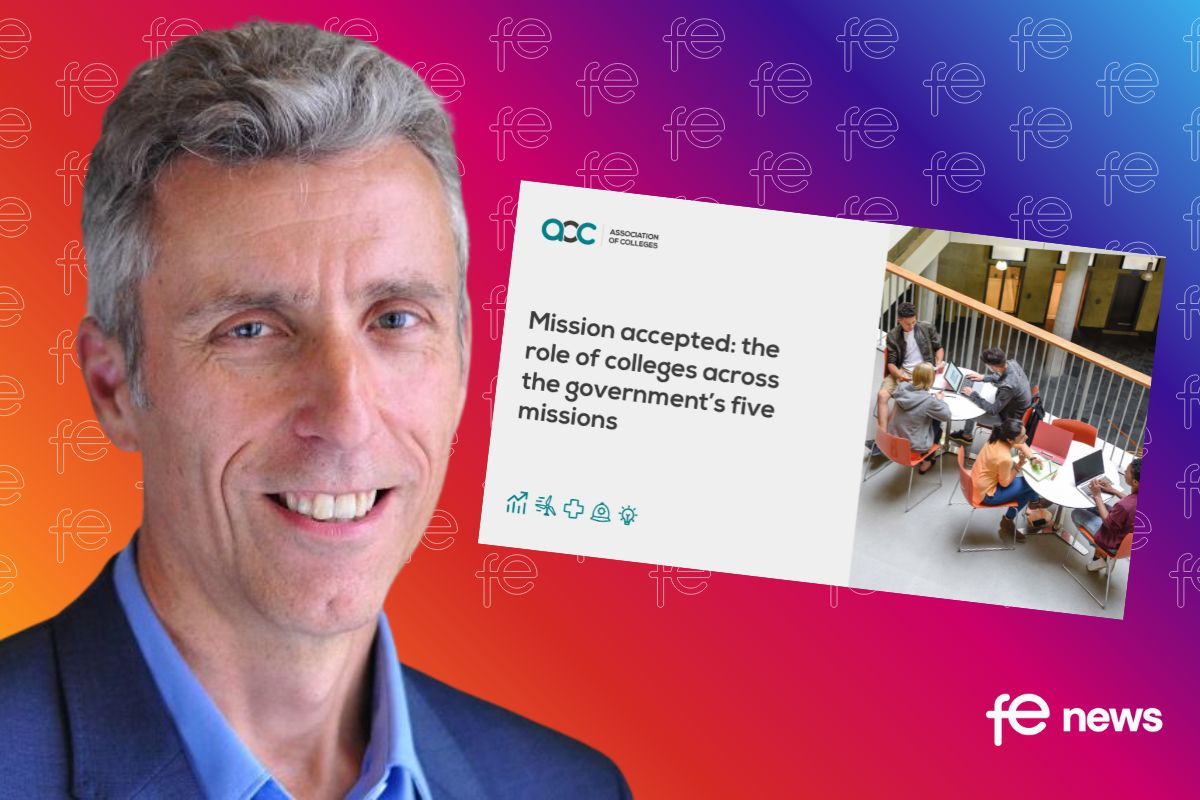New EPI report compares the education catch up plans of the four UK nations

@EduPolicyIns – Education catch-up plans of all four UK governments fail to offer pupils the support they need
- New EPI analysis compares the plans of the UK, Scottish, Welsh and Northern Irish governments to help pupils catch up with learning following the pandemic.
- The UK government’s catch-up programme for Scotland is the most generous after their announcement this week Scotland’s total funding for education catch up from £80m to £140m, and on a per pupil basis from £114 to £200
- England is next at £174 per pupil (totalling £1.2bn for schools, £96m for colleges).
- This is followed by £88 per pupil in Wales (£40m), and £82 per pupil in Northern Ireland (£28m).
- However, catch-up plans in Wales and Northern Ireland are far better targeted, with a greater share of funding aimed at disadvantaged pupils – whose learning has been hardest hit by the disruption to schools.
- Around half of Welsh and Northern Irish catch-up funding has been targeted towards poorer pupils, compared to 30% in England and 20% in Scotland.
- Scotland’s plan spans the longest period, covering this academic year and next. The UK government has committed some extra funding for next year for England, while current Welsh and Northern Irish plans end this summer.
- All nations have failed to provide adequate guidance on supporting vulnerable pupils who have special educational needs (SEND) with remote learning.
- EPI researchers conclude that all current catch-up plans are insufficient – UK governments should put in place multi-year education programmes which address the scale of learning loss.
A new report by the Education Policy Institute (EPI), funded by the Nuffield Foundation, finds that the education catch-up plans of all four UK nations offer insufficient support for pupils, and are unlikely to address the scale of learning loss following the pandemic.
The analysis, which compares the programmes established by governments of the UK (England), Scotland, Wales and Northern Ireland, shows that after almost a year of disruption to education, each nation’s plans to help pupils catch up differ markedly in their level of resources and focus.
The funding directly committed in England and Scotland for their respective catch-up programmes is shown to be the most generous on a per pupil basis. England’s per pupil funding is significantly ahead, with its catch-up funding over twice that of the support offered by Wales and Northern Ireland.
However, the catch-up programmes of Wales and Northern Ireland are far better targeted at their most disadvantaged pupils, who according to research, have seen their education suffer the most over the course of the pandemic. In these two countries, around half of catch-up funding is allocated to poorer pupils.
English and Scottish programmes, in contrast, are poorly targeted – with a lower proportion of funds directed at their most disadvantaged pupils.
As all UK nations move closer towards reopening schools, the new research also examines how all four governments fared during the last period of reopening in the autumn term, in order to understand the lessons that each country can learn.
This includes an assessment of support for the most vulnerable children, how local outbreaks and closures were dealt with, and approaches to early years education – each of which differed greatly among the UK nations.
Key findings
Comparing education catch-up plans in the UK
While governments across the UK have provided extra support for catch-up, these plans differ in their funding levels, approach and focus on disadvantaged pupils:
- In England, the Department for Education has committed around £1.2bn or £174 per pupil for catch-up support (£1.3bn if the £96m for colleges is included). This includes a general catch-up premium of £80 per pupil, in addition to the National Tutoring Programme targeted at more disadvantaged pupils.
- The Scottish government has provided £80m or £114 per pupil over two years to cover 1,400 additional teachers and 200 extra support staff.
- The Welsh government has provided about £40m or £88 per pupil for catch-up support through its ‘Accelerated Learning Programme’ and targeted support for exam year groups.
- The Northern Ireland Executive has provided about £28m for catch-up support and activities, or about £82 per pupil. This includes activities in schools in summer 2020 and the ‘Engage Programme’ to help pupils catch-up.
- While the level of catch-up funding is clearly lower in Wales and Northern Ireland, a larger share of programme funding is targeted at disadvantaged pupils in Wales and Northern Ireland (around 50 per cent) than in England (30%) and Scotland (20%).
- Whilst these plans all represent welcome additional support, they are all modest compared with the scale of the challenge, with pupils so far missing out on about half a year of normal face-to-face schooling.
Reopening schools: how the UK nations fared previously
- After schools reopened again in the autumn term following the disruption from earlier in the year, attendance rates across the term were highest in Scotland and Northern Ireland (mostly about 90% or higher).
- This is due to low case rates in these countries, and because the new school year starts earlier, in August. This meant that pupils in Scotland and Northern Ireland were able to attend school in large numbers in August 2020 when cases were very low.
- In contrast, attendance in England and Wales across the autumn term was lower. It varied from 80% to 90% over the whole term, falling under 70% in Wales in mid-December.
- There was also more local variation in England and Wales, reflecting more significant local outbreaks. This affected deprived areas more, with the lowest attendance in South Wales, such as Swansea, Neath Port Talbot, Merthyr Tydfil, Blaenau Gwent and Newport, and in deprived areas of England, such as Oldham, Sandwell, Rochdale, Medway.
- Across the UK, attendance was lowest in special schools.
UK nations’ support for more vulnerable pupils with SEND
Children with special educational needs and disabilities (SEND) have faced considerable challenges with remote learning, with many lacking access to specialised support:
- Funding to support children with SEND was announced in Northern Ireland and England in the autumn term, in the spring term in Wales. In Northern Ireland and Wales, funding applies to children in all schools with SEND, while in England only the minority of children with SEND who attend a special school are eligible.
-
Scotland recently announced £60m of additional investment in education recovery, including employing more teachers, classroom support staff and facilities management. This additional funding by the Scottish government represents a significant increase in the amount of funding previously committed for pupil catch up. Overall, this increases Scotland’s total funding for education catch up from £80m to £140m, and on a per pupil basis from £114 to £200. As a result, Scotland overtakes England in having the highest amount of funding of the four UK nations committed to catch up.
- All UK nations failed in the autumn term to provide sufficiently detailed guidance to schools and local authorities on how they are expected to deliver education for pupils with SEND.
- This omission from policymakers could prove highly damaging, given the risk that many children with SEND will have fallen behind their peers during the first lockdown and are likely to require more support to learn while at home than other pupils.
The experience of early years education settings in UK nations
After disruption during much of 2020, by the autumn, the proportion of early years providers that were open for children increased substantially:
- Early years providers reopened quickest in Wales and Scotland, where by October more than 90% of settings were open, compared to around 80% in England.
- Some key forms of support for providers across the UK such as the Coronavirus Job Retention Scheme have remained in place across the UK over this period.
- Government support for early years providers during the autumn term 2020 appears to have been most generous in England and Northern Ireland where some funding was over and above current demand for places. However, since January 2021, England has reverted to allocating funding based on registered places.
Commenting on the new report, Luke Sibieta, author and Research Fellow at the Education Policy Institute (EPI), said:
“All four UK nations have faced common challenges following the massive disruption to education, but this analysis shows that despite this, their approaches to academic catch-up programmes contrast significantly.
“The Scottish and UK governments have so far committed the most catch-up funding, however the programmes for both Scotland and England are poorly targeted. In comparison, we find that the programmes of Wales and Northern Ireland have lower funding in total, but focus more resources on the poorest pupils, who we know have been hardest hit.
“We know that the adverse effects of the pandemic will persist well beyond this academic year, so policymakers across the UK must look at providing additional catch-up funding over multiple years, with far greater levels targeted at the most disadvantaged pupils. Only then will we begin to meet the scale of the challenge posed by this crisis.”
David Laws, Executive Chairman of the Education Policy Institute (EPI), said:
“It is very clear that current education catch-up proposals offer only a fraction of the support that is needed to deal with the huge amount of lost learning time.
“Next week, alongside the decisions on school reopening, the Prime Minister should announce the first stage of an ambitious, multi-year programme of support for education recovery. The costs of lost learning time are likely to be very large, both in terms of national output and social mobility. We now need a set of solutions that will match the magnitude of this challenge.
“This is a recovery that needs to happen across the UK, so the leaders of the devolved nations must also urgently set out their own multi-year education support plans.”
Sector Response
Kate Green MP, Labour’s Shadow Education Secretary, responding to the Education Policy Institute’s report Education reopening and catch-up support across the UK, said:
“The Conservatives have treated children as an afterthought throughout this pandemic and should be far more ambitious for their recovery.
“Enabling all young people to catch-up on lost learning and time with friends must be central to rebuilding our country after this pandemic.”
Responding to the report Chief Executive of Association of Colleges, David Hughes said:
“Today’s report from EPI shines a light on the impact of young people’s lost learning over the past 12 months, the threat this poses of widening existing inequalities and the need for an increase in funding to respond. We welcome this and are pleased to see similar focus from the Children’s Commissioner as well as the appointment of Sir Kevan Collins as Education Recovery Commissioner.
“The report focuses mostly on schools, but the issues are the same for students continuing their education into college this September who will need additional support through the transition and beyond to ensure that they are ready to embark on the next stage of their education. AoC is suggesting that catch up funding should be allocated on the basis of measures of deprivation to ensure that the resources are targeted effectively.
“Centrally planned initiatives such as the National Tutoring Programme for school-aged children don’t work so well for many post-16 students who need specialist learning to support their progression into employment or further study. A range of provision including access to practical learning settings, catch-up and support for personal development and wellbeing will be required. Colleges should have the flexibility to decide who needs support, what they need and how best to provide it because the disruption will have affected different students in varying ways.
“Young people face huge new challenges as they prepare for employment or Higher Education. Those planning on finding jobs this summer will face a cut-throat labour market with intense competition as unemployment rises. Lost learning will not have helped young people be ready or confident for that and it may have impeded their competency, making them less attractive to prospective employers. More work needs to be started now to reduce that impact.”
Paul Whiteman, general secretary of school leaders’ union NAHT, said:
“The government must have a long-term plan for evidence-based education recovery, not short-term catch-up ideas such as add-ons to the school day. High-quality of teaching is the most important driver of educational equity, and the best contribution the government could make is to value and invest in the teaching profession.
“Now is the time for the government to give staff who are considering leaving, a reason to stay in the teaching profession, and alongside this must be a boost to investment in high-quality professional development. And the Department for Education must incentivise and reward those teaching in the most disadvantaged communities, while the government looks beyond the school gates to determine how to improve life chances for young people.
“While we should capitalise on the online innovations that have happened during lockdown and which can support homework in future, the biggest limitation of online learning throughout the pandemic has been, and remains, the lack of access to internet connections and devices. Schools and pupils need the funding and resources to overcome these obstacles.”











Responses